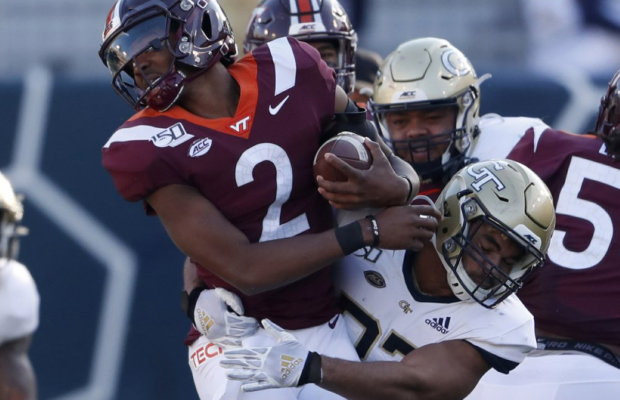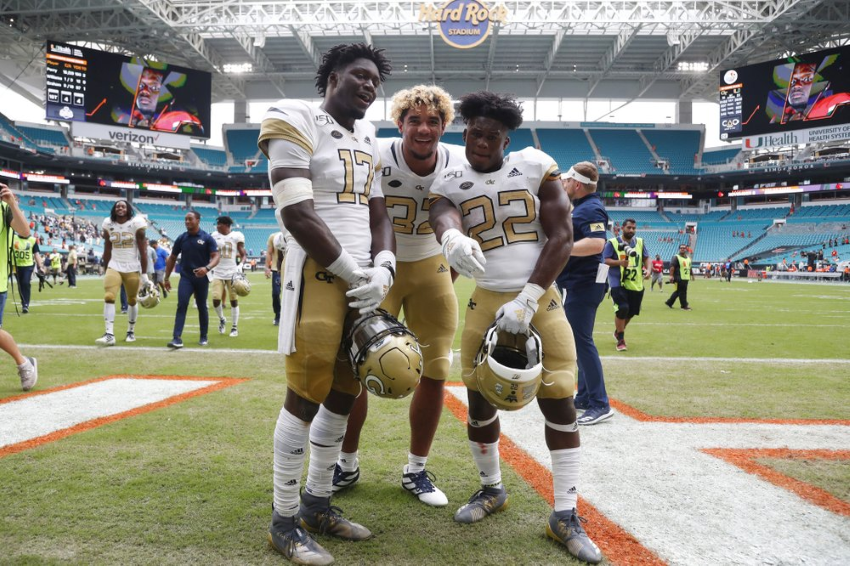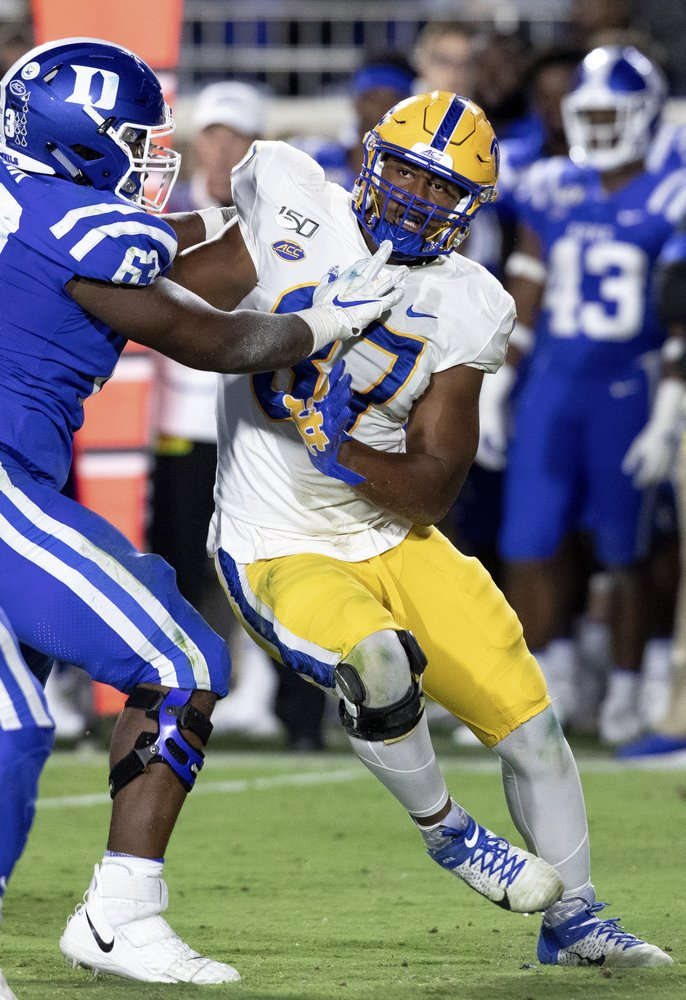Europe the ‘next frontier’ in US college football recruiting

By Ken Maguire
When Brandon Collier first called college football coaches on behalf of European kids, one of them asked, “Are they kickers and punters?”
He doesn’t get that question anymore.
Europe has become a pipeline of Division I recruits and increasingly for schools from the Power Five conferences. Recruits from Germany, Sweden, Finland, Serbia and Ireland signed this week with programs including Washington, TCU, West Virginia, Virginia Tech, Georgia Tech and Boston College.
“Having seven or eight kids signing Power Five this year, without having a summer tour, is a really big deal in terms of seeing where football is growing internationally,” said Collier, an Ohio native who runs PPI Recruits in Frankfurt, Germany.
At least 11 Europeans — including linemen, a quarterback and a tight end — officially accepted scholarship offers on Wednesday to play for Division I schools. A handful more are expected to sign in February, bringing the total in line with last year, no small feat with coronavirus pandemic restrictions.

Georgia Tech DL Sylvain Yondjouen of Belgium (32) poses with LB Demetrius Knight II (17) and RB Jamious Griffin (22) after NCAA game Photo: AP Photo/Wilfredo Lee, file
West Virginia added Nordic flavor on both sides of the ball with Swedish tight end Victor Wikström and Finnish defensive lineman Edward Vesterinen. Last year, the Mountaineers snagged Dutch cornerback Jairo Faverus.
“It’s kind of the next frontier, so to speak, in recruiting,” West Virginia head coach Neal Brown said about Europe in a press conference on Wednesday. “Everybody’s in a trial run on this.”
Brown described Wikström as a “physically mature kid … He’s a guy that we’re excited about.” He said Vesterinen is “a big strong physical guy that can bend.”
“If they pan out, I think you’ll see West Virginia be more active internationally, and I think there’ll be a trend across college football,” Brown said.
Of the Football Bowl Subdivision international signees — excluding those routed through junior colleges and high schools — between 2010 and 2016, only two were from Europe, according to 247Sports, a website that tracks recruits. More than half of this year’s European class is coming directly from their home countries, and as usual led by Germans.
Early Wednesday morning, TCU flexed its language skills, writing “Guten Morgen aus Deutschland!!” on Twitter to announce German quarterback Alexander Honig. The 6-foot-6 QB responded by writing: “Couldn’t be happier!”
It’s been a strange year for recruitment because of COVID-19 restrictions.
German offensive lineman Danijel Miletic landed video interviews with Virginia Tech coaches based mostly on recommendations from Collier and former Cincinnati Bengals offensive line coach Paul Alexander.
“I was really nervous,” Miletic said. “It’s like a job interview.”
He got the gig. Miletic leaves for campus in January.
Collier’s recruiting and placement service has become the go-to shop since launching four years ago, when it sent only two kids to U.S. colleges. It’s been growing since. Last year, for example, he placed 15 Europeans in Division I schools, six of which were Power Five.
This year’s numbers likely would have been much higher but Collier’s annual summer tour featuring busloads of European kids hitting dozens of camps — getting invaluable face time with the likes of Nick Saban and Jim Harbaugh — was canceled because of the pandemic.
Small programs like Towson, Temple and UMass — where Collier played defensive line — saw the European potential early, but bigger ones have caught up.
Last year, Syracuse signed tight end Maximilian Mang and offensive lineman Mark Petry — described as the first German natives to play football for the Orange — and the Fighting Irish went German with defensive lineman Alexander Ehrensberger.
Speaking of Irish, punter David Shanahan of Ireland signed Wednesday with Georgia Tech. He had trained at ProKick Australia in Melbourne.
About 80% of last year’s FBS recruits signed in December rather than waiting until February.

Pittsburgh’s Habakkuk Baldonado, of Italy (87) works against Duke’s Jacob Monk (63) during an NCAA game in Durham Oct. 5 2019 Photo: AP Photo/Ben McKeown, file
As a German quarterback, Honig knows there will be a curiosity factor.
“I believe there may be more eyes on me than the other players because the coaches haven’t seen me a lot, and they’re very curious what first impression I make,” Honig said.
In the past, Europeans mostly winged it. It worked for Germany’s Björn Werner, who played defensive end for Florida State after attending prep school. The Indianapolis Colts selected him in the first round of the 2013 NFL draft — three spots ahead of DeAndre Hopkins.
Werner co-founded Gridiron Imports, placing kids in prep schools and junior colleges. That’s how German offensive lineman Kilian Zierer ended up at Auburn. German wide receiver/tight end Marlin Klein has already committed to Michigan for 2022 after spending this season at a Georgia boarding school.
Now, college coaches aren’t just waiting for recruits to come to them. A dozen schools have made recruiting trips. Head coaches Geoff Collins of Georgia Tech and James Franklin on Penn State have both visited Europe — all before COVID-19.
Collier said Australia is also fertile ground — beyond punting. Two of his Aussie recruits signed on Wednesday, and offensive lineman Jordan Moko — 6-foot-5, 330 pounds — has more than 20 offers including LSU, Texas A&M and Florida. The former rugby player said he’ll decide in February.
But it’s not just linemen that coaches want.
“They’re asking for every position now,” Collier said. “We haven’t had a kicker or a punter, which is ironic.”